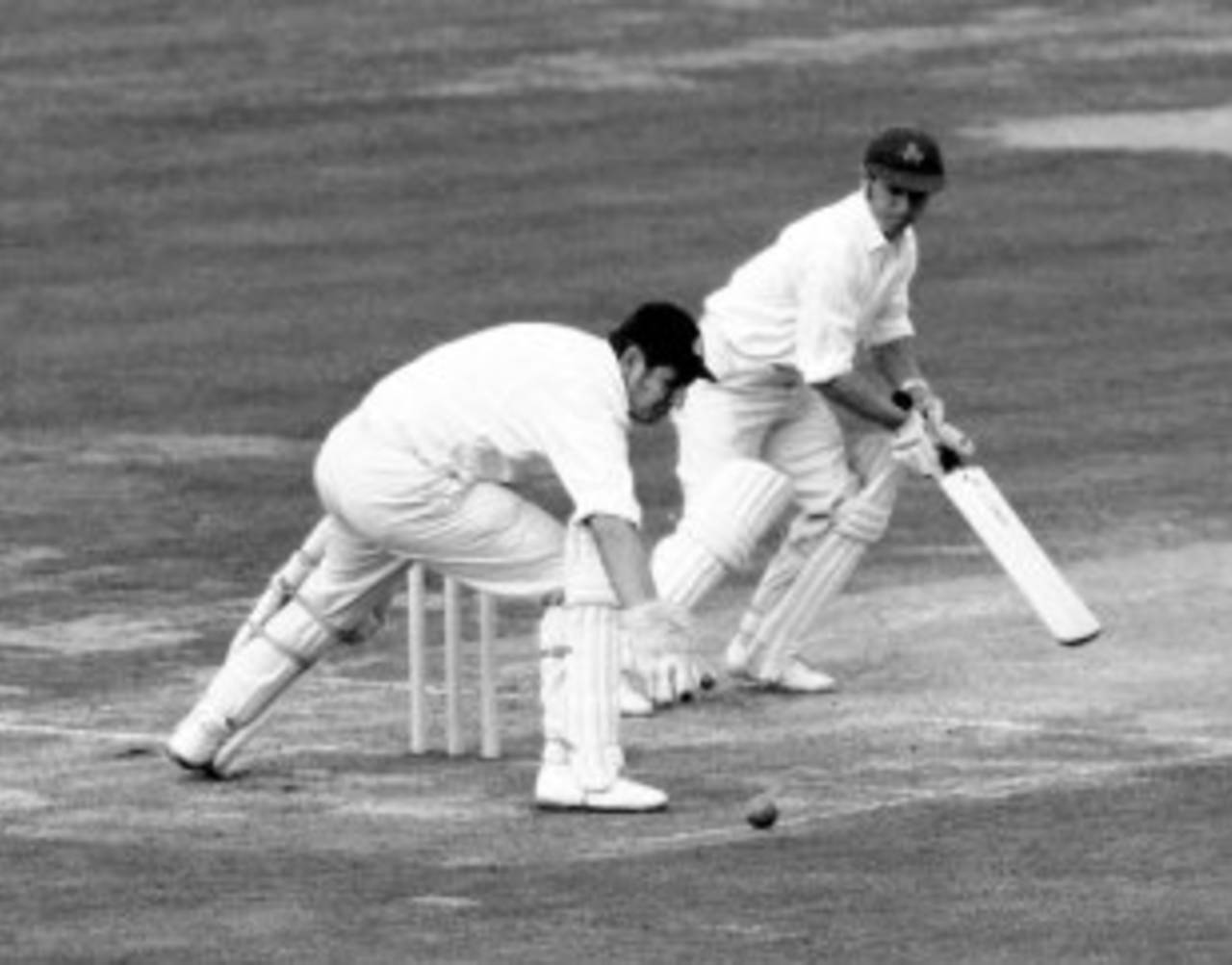Harry Pilling, the former Lancashire batsman, has died at the age of 69. A right hander, he played for the county from 1962 to 1980 and was a key member of the side which dominated domestic one-day cricket in the first half of the 1970s.
Standing at 5ft 3in, Pilling never took a backward step and one of his more famous innings came in the 1970 Gillette Cup final at Lord's when he struck an unbeaten 70 to guide Lancashire home against Sussex.
Pilling's lack of height was inevitably what headline writers concentrated on - and perhaps accounted for him never being selected by England when far inferior batsmen were - but it underplayed his bravery and ability. Given his lack of reach he was not a great driver, but his ability to nudge and nurdle made him well suited to the limited-overs format which started around the same time as he did. He was, unsurprisingly, unfazed by short-pitched bowling.
At the start of his career he was an offspinner but he soon graduated into a specialist No. 3, passing 1000 runs in a season for the first of eight times in 1965. Although he went on to make 25 hundreds he never passed 150, and despite his early potential as a bowler he took just one first-class wicket.
But one-day cricket was his forte. In 1970 he was the first player to pass 1000 runs in the fledgling John Player League, and after his success in that year's Gillette Cup final he was in the side that retained the trophy in 1971 and 1972.
In first-class cricket, Pilling made 15,279 runs at 32.23 in his 333 matches. Off season, as David Frith recalled, saw him make ends meet in a wide variety of ways. "For a while [he] had been a coffin salesman. His … earnings over the years came from an extraordinary variety of means: apprentice butcher, toolmaker, coalman, general labourer, lorry driver, and 'an umbrella-handle putter-onner'."
"He should have played for England," former Lancashire team-mate Farokh Engineer told the Manchester Evening News. "He was a really good cricketer, but more than that he was a good team man and a real character. He was one of the first people I met when I arrived at Lancashire from India and he greeted me with a traditional 'alreet lad!' I will never forget it, I didn't have a clue what he was saying..
"We used to call him Mr Reliable in the dressing room because we knew that whatever happened at one end, he would be at the other steadily going along making runs, whatever the wicket."
Former Lancashire captain Jack Simmons, who went into business with Pilling after they had retired, told the newspaper that "he could just bat and bat … and he would guarantee you 1,000 almost every year. When he was in nick, which was most of the time, he never went in the nets he just used to put bat on ball. But if at any stage he was struggling, he would be the first in the nets and the last one out.
"But the greatest thing was that wherever I went in the world, whether it be in England, Australia or the West Indies, people always asked me how 'Little Harry' was."
Lancashire's outgoing chief executive Jim Cumbes said: "We are greatly saddened to hear about Harry's passing. He was a stalwart of the Lancashire side in the 1960s and 1970s and was a key member of the successful one-day teams from that era."
Martin Williamson is executive editor of ESPNcricinfo and managing editor of ESPN Digital Media in Europe, the Middle East and Africa
